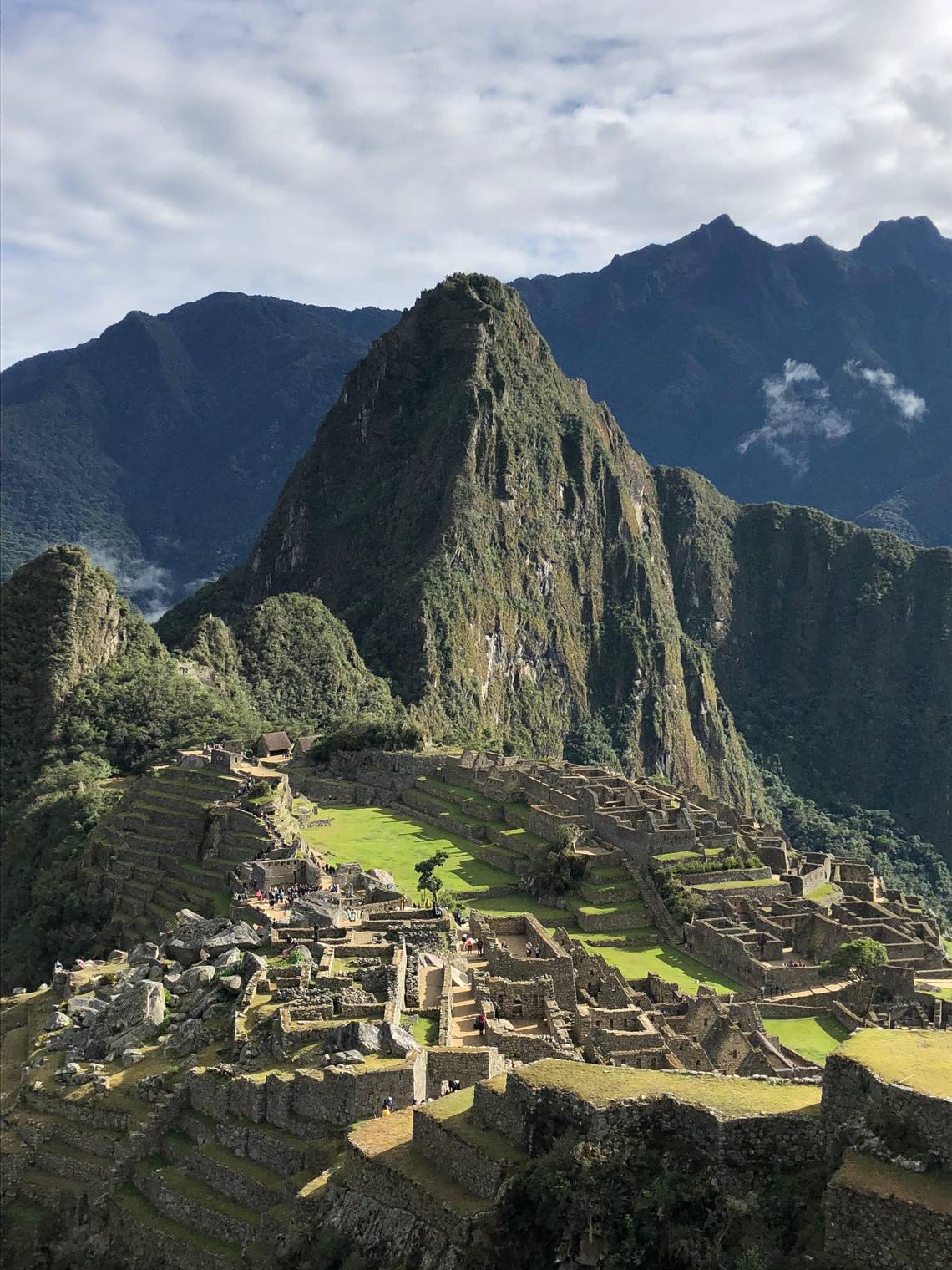Searching for wonder in the reality of nature
Fresno Bee, July 29, 2018
Modern human beings are alienated from nature. We live in air-conditioned rooms. We relate to higher things through dry, ancient books. We rarely see the stars or feel the rain. We are rootless.
I have been thinking about our alienation from nature after trekking through the Andes of Peru. The trek ran over high mountain passes, where we endured freezing rain and cold, windy nights. We witnessed wild jungles and wandering llamas. And we celebrated the blessing of sunshine, which gave us warmth and the rainbow.
Our guide paused at the entrance to Machu Picchu to give an offering. He gathered three coca leaves into a shape that represents the mountains. He presented this gift to each of the four directions. He left the coca in a secret niche at the Sun Gate.
It made sense to give thanks to the mountains, to the elements and to the coca that made our journey possible. Coca tea helps fight altitude sickness. Its salutary effect is a kind of magic. There is also magic in the sun’s heat, the river’s song, and the rainbow’s glow.

Religion in its best and original sense comes from the sense of wonder before the power of nature. It reminds us that we belong to the earth. We cannot live without land, water, and sun. These elements combine in the plants and animals that nurture us.
Nature is not all ease and comfort. Forest fires are rampaging in this long hot summer. Snow, rain, and cold are dangerous and difficult. But when the rains come or the sun breaks through, we give thanks.
In aboriginal Andean religion, the earth is a spiritual being called Pachamama, the earth mother. The mountains themselves are spiritual beings called Apus. These are powerful and mercurial beings. They can be dangerous or benevolent. To modern ears, this sounds far-fetched. But many cultures speak of mountains as divinities with personalities.
We still name mountains and understand their personas. In Yosemite there is Half Dome and El Capitan. Their presence is palpable. We also recognize that mountains do things. Climbers and backpackers have a saying: “Mountains make their own weather.” Temperatures change quickly. The wind comes on strong. Fire, rain, and snow are sudden in their appearance.
Modern science explains the orographic effect. Mountains interact with moving air masses. Changes in elevation cause changes in temperature that cause precipitation and swirling winds. Mountain weather is easily explained by atmospheric science.
But scientific explanation does not touch the lived sense that mountains are powerful beings. It makes sense to say that the mountains are angry or friendly. Thunder and lightning are threatening. Forest fires are malicious. Floods are cruel. Gentle blue skies and cool mountain streams are gracious and hospitable.
Much of the magic of nature is local. The sun is wrathful in the desert. It is cheerful in the cold high places. The rain is gentle in the valleys. It is vicious at 13,000 feet.
Those who live and work on the land are in touch with the personality of their local geography. Their livelihood comes from Pachamama. Their well-being depends upon the benevolence of the Apus.
There are very few farmers and shepherds left. We are no longer connected to nature.; we no longer belong to her. We do not know where our water and food come from.
The benefit of civilization is obvious. We dam the rivers and control the fires. We farm on an industrial scale. We drive and fly, instead of walking. We live in comfort and safety.
But this benefit is not without its costs. We are uprooted and dislocated. We lose track of who we are and where we belong. We no longer experience wonder or gratitude in their original organic sense.
This is not to say that we could go back to a world of Apus and the Pachamama. The world has moved on. But it is important to remember what we have left behind. We fill our lives with imitations of reality, flickering on screens. Out there in the natural world, the fires and storms still rage. And it is still possible to experience wonder, fear, and joy in the presence of the real.


